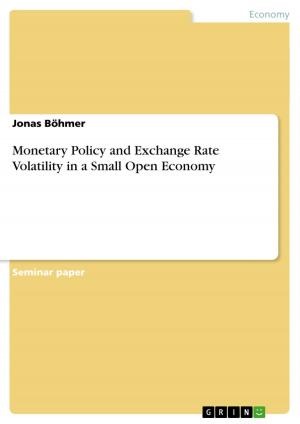Elucidation of Annuitisation Anomalies via Financial Behaviour
Business & Finance, Finance & Investing, Finance| Author: | Karime Mimoun | ISBN: | 9783640635924 |
| Publisher: | GRIN Publishing | Publication: | June 2, 2010 |
| Imprint: | GRIN Publishing | Language: | English |
| Author: | Karime Mimoun |
| ISBN: | 9783640635924 |
| Publisher: | GRIN Publishing |
| Publication: | June 2, 2010 |
| Imprint: | GRIN Publishing |
| Language: | English |
Essay from the year 2010 in the subject Business economics - Investment and Finance, grade: 1.0, University of the West of England, Bristol, language: English, abstract: In the near future, private retirement savings will become more important than ever, caused by the upcoming retirement of the baby boomer generation plus increasing life expectations. This raises the question of how to convert accumulated wealth into a secure retirement income. How people choose among the saving alternatives will determine who are the beneficiaries from these large cash flows (Hu and Scott, 2007). In this respect life annuities are a quite valuable option; whereby an individual pays a large lump sum in advance and receives in return a regular payment stream and eliminate the risk of longevity (for further detail see: Cannon and Tonks, 2008). However, the annuity market faces a considerable lack of demand and many researchers attempted to solve this annuity puzzle through relaxing the assumptions. The origins; Yaari (1965) proposed the full annuitisation of the 'homo-economicus', the rational utility maximize, in his retirement based on the assumptions of fair actuarial pricing and no bequest motive. As the homo-economicus is expected to make adequate option evaluations and informed decisions the actual investor suffers under bounded rationality and receives not perfect outcomes (Mitchell & Utkus, 2003). Recent studies in the annuity sector moved away from how someone 'should' behave to how investors 'actually' behave based on theories from financial behaviour. This paper attempts to explain many misty puzzle parts and gives valuable insides of the low annuitisation rate. The first part is a recap of the annuity market under relaxed assumptions. The next part describes several financial behaviour anomalies and their impact on annuitisation.
Essay from the year 2010 in the subject Business economics - Investment and Finance, grade: 1.0, University of the West of England, Bristol, language: English, abstract: In the near future, private retirement savings will become more important than ever, caused by the upcoming retirement of the baby boomer generation plus increasing life expectations. This raises the question of how to convert accumulated wealth into a secure retirement income. How people choose among the saving alternatives will determine who are the beneficiaries from these large cash flows (Hu and Scott, 2007). In this respect life annuities are a quite valuable option; whereby an individual pays a large lump sum in advance and receives in return a regular payment stream and eliminate the risk of longevity (for further detail see: Cannon and Tonks, 2008). However, the annuity market faces a considerable lack of demand and many researchers attempted to solve this annuity puzzle through relaxing the assumptions. The origins; Yaari (1965) proposed the full annuitisation of the 'homo-economicus', the rational utility maximize, in his retirement based on the assumptions of fair actuarial pricing and no bequest motive. As the homo-economicus is expected to make adequate option evaluations and informed decisions the actual investor suffers under bounded rationality and receives not perfect outcomes (Mitchell & Utkus, 2003). Recent studies in the annuity sector moved away from how someone 'should' behave to how investors 'actually' behave based on theories from financial behaviour. This paper attempts to explain many misty puzzle parts and gives valuable insides of the low annuitisation rate. The first part is a recap of the annuity market under relaxed assumptions. The next part describes several financial behaviour anomalies and their impact on annuitisation.















